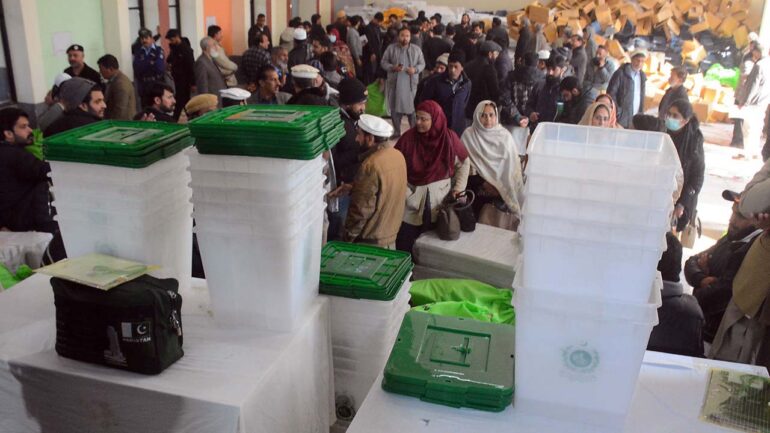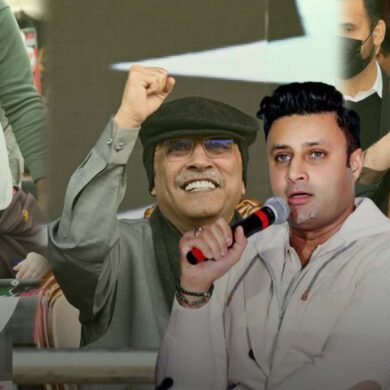The country will witness the biggest democratic exercise on Thursday as citizens have geared up to elect representatives for a five-year term.
The Election Commission of Pakistan (ECP), in collaboration with various supporting departments and law enforcement agencies, has meticulously organized extensive arrangements.
A staggering 18,000 candidates are vying for the votes of the registered electorate, which stands at 128,587,760, to secure approximately 855 general seats in the National and Provincial Assemblies.
Recognizing the importance of facilitating voters, the ECP has declared February 8 a public holiday, providing citizens with ample opportunity to exercise their right to vote conveniently.
To ensure a fair and smooth electoral process, the Commission has issued a Code of Conduct for both voters and media personnel. Polling agents have been instructed to prominently display their authorization cards.
Stringent regulations have been imposed, including a complete ban on campaigning within a 400-meter radius of polling stations.
The ECP emphasizes that no candidate, polling agent, or their supporters should interfere with the official functioning.
Of the 92,500 polling stations nationwide, 17,500 have been categorized as highly sensitive, 32,508 as sensitive, and 42,500 as normal. Highly sensitive stations include 2,038 in Balochistan and 4,344 in Khyber Pakhtunkhwa.
The ECP has diligently trained 1.49 million election staff members to ensure the seamless execution of the electoral process.
An Election City, equipped with cutting-edge technology, has been established to swiftly disseminate results to the media. A comprehensive strategy is in place to receive results via various channels, including WhatsApp, email, and fax. The Election Management System (EMS) will operate even in areas with limited internet connectivity, with satellite communication arrangements in place.
Security measures are paramount, with over 648,000 personnel deployed nationwide to ensure voter safety and a transparent polling process. Of these, 137,000 are from the army and paramilitary forces, while 511,000 are policemen.
An average of seven to eight security personnel will be stationed at each of the 90,777 polling stations across the country, with a tiered approach involving police, civil armed forces, and the military.
To address any untoward incidents, a special aerial Quick Reaction Force (QRF) has been established, particularly in Balochistan. Modern surveillance tools, including CCTV cameras, have been installed to maintain peace and security on election day.
The Ministry of Interior has set up a national crisis information management system to monitor the electoral process around the clock.
The Election Monitoring and Complaint Centre (EMCC) has been established to address voters’ grievances. Complaints can be submitted through email or the dedicated helpline. The ECP has successfully distributed 260 million ballot papers to the District Returning Officers (DROs). Voters are reminded to bring their Computerized National Identity Cards (CNICs), as no other document will be accepted.
International scrutiny is in place, with a group of eminent experts from Commonwealth states monitoring the electoral process. The ECP has granted first-class magisterial powers to the DROs and Returning Officers under Section 193 of the Elections Act 2017.
Despite the challenges, political parties have made strides in women’s representation, with 111 parties nominating 280 women candidates, constituting 4.6% of the total candidates.
Section 206 of the Elections Act, 2017 mandates each political party to ensure at least 5% representation of women candidates for general seats through a transparent and democratic process.



